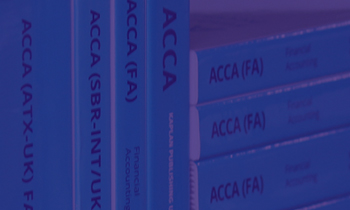This is the first in a three-part series of articles focusing on the significant benefits that investing in an effective CFA learning program can have for your organization and employees. Part 1: Benefits to Your Organization Part 2: Benefits to Your Employees Part 3: Critical Elements of a Successful CFA Learning Program Achieving the … Continue reading "Part 1: How Investing in Your CFA® Candidates Benefits Your Organization"
This is the first in a three-part series of articles focusing on the significant benefits that investing in an effective CFA learning program can have for your organization and employees.
- Part 1: Benefits to Your Organization
- Part 2: Benefits to Your Employees
- Part 3: Critical Elements of a Successful CFA Learning Program
Achieving the Chartered Financial Analyst (CFA) is a crowning achievement for many finance professionals. It demonstrates several key qualities that employers value:
- a high level of expertise in investment analysis and asset management
- the dedication necessary to successfully complete a rigorous program
- a high ethical grounding
As such, it remains popular among aspiring finance professionals, as well as the organizations that hire them.
The drawback is that earning the CFA designation is a challenging process spanning multiple years. The relatively low pass rates on the CFA exams confirm just how hard the CFA exams are. Furthermore, most candidates pursuing the CFA Charter are already in the workforce, which further complicates the preparation process.
Employers that recognize and support employees as they pursue the CFA charter, stand to realize tangible benefits. Offering access to an effective CFA exam prep program complemented by support from your organization in the form of mentorships, work flexibility, and tuition reimbursement can benefit your organization in multiple ways:
- Increase company loyalty and improve retention
- Enhance your organization’s competitiveness
- Lower exam and tuition costs
Increasing Company Loyalty and Improve Retention
It’s no secret that companies are concerned about employee retention. According to LinkedIn Learning’s 2023 Workplace Learning Report, 93% of organizations worry about retention. In this report, Van Ton-Quinlivan, Futuro Health CEO, divulges “Everyone wants experienced workers but lacks the capacity to train the new folks, so they are stealing talent from each other. We need to figure out a way to break this cycle — and that includes investing in the training capacity to grow brand new workers.”
When you invest in your team members, they feel valued, creating loyalty that results in lower turnover and improved job performance. In a tight labor market where skilled professionals freely migrate from company to company, investing in your employees is a deeply personal benefit that keeps motivation high. Formal training programs, tuition reimbursement programs, and associated internal support are being successfully employed by many companies to attract, retain, and upskill high-performing employees.
A recent survey from Strategic Education, Inc. found that 76% of respondents, who said their current employer offers tuition benefits, indicated that they felt valued by their current employer. Taking that one step further, providing key employees with educational opportunities, such as a CFA learning program aligned directly with their career aspirations and your organization’s talent needs, is known to provide dividends in the form of increased expertise and employee retention.
Learn How Kaplan Schweser’s Corporate Programs Can Benefit Your Team and Organization
Enhancing Your Organization’s Competitiveness
Organizations that offer an effective CFA exam prep program help increase your firm’s competitiveness by developing employees into skilled professionals, strengthening your organization’s talent, accelerating productivity, and enhancing your organization’s credibility and reputation.
Addressing Skill Gaps and Strengthen Your Organization’s Talent
A recent McKinsey & Company survey found that “87 percent of executives said they were experiencing skill gaps in the workforce or expected them within a few years.” With respect to the financial services industry, a PwC study indicated that a large majority of CEOs ‘see a skills gap emerging because of a deficit in the supply of skilled workers.”
The same PwC study indicates that those same CEOs saw “significant retraining or upskilling their current workforce as their main approach to closing this skills gap.” So instead of competing for talent, you’re investing in talent internally.
Enhancing your organization’s credibility and reputation
There is a high regard for CFA charterholders globally, and having charterholders on your staff enhances your organization’s credibility. It is a testament that your team has proven skills and knowledge to positively impact the bottom line. It also demonstrates that your organization is committed to superior professionalism and a strong work ethic, traits that resonate with clients. It helps earn their trust that your organization has the capabilities to successfully meet their needs.
Lowering Exam and Tuition Costs
CFA Program registration fees for the 2024 CFA exam season are on the rise. CFA Institute is increasing its early registration to $940, while standard registration is increasing to $1,250. With historical average pass rates hovering between 41% for the Level I exam and 55% for the Level III exam, exam fees alone can quickly add up. And if an employee fails, as most people do at least once along the way, registration fees alone can be an expensive proposition.
Furthermore, the cost of failure is not only financial; failing an exam can take a toll on your employee’s emotional well-being. This can result in disappointment, embarrassment, and frustration that can negatively impact job performance.
With such high stakes, the best way to keep the costs down is to have employees:
- register only during the early-bird period
- communicate with their managers to ensure aligned expectations during the study period
- participate in CFA exam prep programs that increase the likelihood of passing each exam the first time
Trusting in a proven CFA exam prep program for your employees can generate improved outcomes on the exam, minimize exam and tuition costs, and result in happier and more productive employees. This is how the organization and the employees both win.
Preparing with the Industry Leader
Kaplan is the most respected and trusted CFA exam prep provider in the industry. For more than 30 years Kaplan Schweser has helped over 500,000 candidates prepare for the CFA exam while supporting hundreds of financial services organizations.
We have helped candidates achieve their career goals through our experienced trainers, world-class support, and digital solutions. Contact us today to know how our CFA B2B learning programs can help your organization achieve your talent development and cost-constraint goals!









